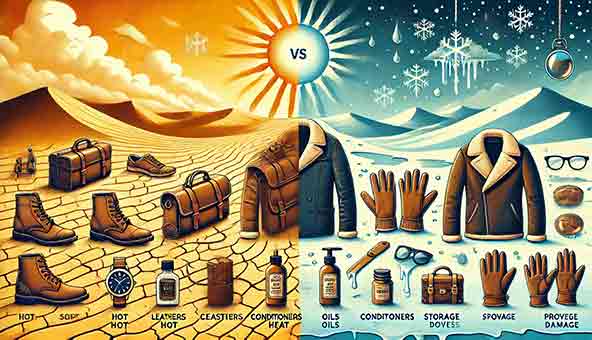
Why Are Motorcycle Gloves Important?
, by Syed Khawar Bukhari, 10 min reading time

, by Syed Khawar Bukhari, 10 min reading time
In the thrilling world of motorcycling, safety takes precedence over everything else. As riders, we comprehend the crucial role that protective gear plays in ensuring a secure and enjoyable riding experience. Among these, motorcycle gloves stand out as an indispensable accessory, offering a unique blend of comfort, control, and safety.
Motorcycle gloves serve as a critical component of a rider's ensemble, designed not just for style but primarily for protection. These gloves are crafted to shield the hands from potential injuries that may occur during a ride.
Protective gear, including gloves, contributes significantly to reducing the severity of injuries in case of accidents. As responsible riders, it is imperative to understand the significance of investing in high-quality protective equipment.

Understanding the stark reality of motorcycle accidents underscores the importance of safety gear. Statistics reveal that a significant portion of injuries involves the hands, making gloves a crucial element in injury prevention.
Gloves play a pivotal role in minimizing the impact of accidents on the hands. Their design, incorporating impact-resistant materials, acts as a barrier against abrasions, cuts, and other potential injuries.
Full-fingered gloves provide comprehensive coverage, offering protection to the entire hand. These are ideal for all types of riders, from daily commuters to avid enthusiasts.
Fingerless gloves, while stylish, prioritize breathability and comfort. They are suitable for warm weather and shorter rides, where full hand coverage may not be necessary.
Designed for speed and performance, racing gloves prioritize enhanced grip and knuckle protection. They cater to riders who engage in high-speed maneuvers on the track.
Touring gloves focus on comfort during long rides, incorporating features like weather resistance and ergonomic designs to ensure prolonged comfort.
The choice between leather and textile gloves depends on individual preferences and riding conditions. Leather provides durability and abrasion resistance, while textile gloves offer breathability and flexibility.
High-quality gloves integrate impact-resistant materials, such as carbon fiber or reinforced padding, to safeguard against potential injuries during accidents.
Adaptable designs cater to various weather conditions, ensuring riders remain comfortable and protected regardless of the climate.
Properly fitting gloves are essential for optimal protection and control. Ill-fitting gloves can compromise safety and lead to discomfort during rides.
Follow a sizing guide provided by manufacturers to ensure a snug fit. This often involves measuring the circumference of the palm and selecting the appropriate size.
While sizing guides provide a valuable reference, the benefits of trying gloves before making a purchase are unparalleled. Physical examination allows riders to assess not only the fit but also the overall comfort and features of the gloves. Consider the following when trying gloves before making a decision.
Ensure the gloves allow for a full range of motion without restricting movement. Flexibility is crucial for comfortable and safe riding.
Evaluate the closure mechanism of the gloves, whether it's Velcro straps, zippers, or snaps. A secure closure contributes to a snug fit and prevents the gloves from coming off during rides.
Assess the comfort level and padding of the gloves, paying attention to areas such as the palm, knuckles, and fingertips. Well-placed padding enhances comfort and impact protection.
One of the primary functions of motorcycle gloves is to enhance the rider's grip on the handlebars. The relationship between a rider's hands and the controls is fundamental to safe and precise riding. Well-fitted gloves contribute to an enhanced grip in several ways.
Gloves, especially those made from high-quality materials like leather, provide superior traction. This ensures a firm hold on the handlebars, preventing slipping or accidental release during acceleration, deceleration, or maneuvers.
Many motorcycle gloves feature a strategic design on the palms, incorporating materials that improve friction and grip. This is particularly crucial when encountering wet or slippery conditions, offering riders confidence in their ability to maintain control.
A proper fit minimizes excess material that may cause discomfort or bunching. This reduction in hand fatigue allows riders to maintain a consistent grip over long rides, promoting safety and overall riding enjoyment.
Gloves play a significant role in shaping the rider's ability to handle the motorcycle effectively. From navigating curves to executing precise maneuvers, the impact of gloves on bike handling is multi-faceted.
Well-fitted gloves facilitate precise control over the various elements of the motorcycle, including the throttle, brakes, and clutch. This precision is particularly crucial when navigating through traffic, changing lanes, or making split-second decisions.
Motorcycles generate vibrations that can lead to hand fatigue and discomfort. Gloves act as a buffer, reducing the transmission of vibrations to the hands. This not only enhances comfort but also contributes to improved control by minimizing the impact of external factors on the rider's grip.
Confidence is a key factor in safe riding. Well-fitted gloves contribute to rider confidence, encouraging a more enjoyable and secure experience.
Riding in cold weather presents unique challenges, with frigid temperatures impacting both comfort and safety. Motorcycle gloves designed for cold weather offer insulation to keep hands warm and nimble, ensuring riders can confidently navigate through winter landscapes.
Riding in warm weather brings its own set of challenges, with heat and humidity impacting both comfort and focus. Ventilated motorcycle gloves are crafted to address these concerns, ensuring riders stay cool and in control.
Wind chill can intensify the perception of cold, making windproofing a crucial feature. Cold-weather gloves are designed to block out chilling winds, maintaining a comfortable and warm environment for the hands.
Gauntlet Gloves with extended cuffs provide additional coverage, preventing cold air from entering through the wrists. This design element not only enhances warmth but also prevents drafts, promoting overall comfort during cold rides.
In warmer climates, ventilated gloves keep hands cool, preventing discomfort caused by excess heat and perspiration.
Warm-weather gloves incorporate breathable materials such as mesh panels or perforations. These features enhance airflow, allowing heat to escape and keeping hands cool during rides in hot climates.
For riders seeking the ultimate ventilation, fingerless gloves are a popular choice in warm weather. These gloves provide partial coverage while leaving fingers exposed, allowing for maximum airflow and minimizing heat buildup.
Sweaty hands can be uncomfortable and affect grip. Ventilated gloves often include moisture-wicking properties, drawing sweat away from the skin and promoting evaporation for a cooler and more comfortable riding experience.
Riding in the rain requires gear that can withstand water infiltration, keeping hands dry and maintaining control over the motorcycle. Waterproof motorcycle gloves are specifically designed to provide effective protection during rainy conditions.
Waterproof gloves feature sealed seams that prevent water from seeping through stitching. This ensures that hands remain dry even in heavy rain, contributing to overall comfort and safety.
Many waterproof gloves incorporate advanced waterproof membranes, such as Gore-Tex. These membranes act as a barrier against rain while allowing moisture from sweat to escape, preventing the buildup of condensation inside the gloves.
To further enhance waterproofing, gloves often include adjustable closures around the wrist. This prevents rain from entering through the openings, ensuring comprehensive protection during wet weather.
Comfort is paramount for an enjoyable ride. Well-designed gloves prevent hand fatigue, allowing for extended rides without discomfort.
Ergonomically designed gloves reduce hand fatigue, promoting comfort during long journeys.
Modern gloves incorporate ergonomic features to enhance comfort during extended rides, making them a valuable investment for avid motorcyclists.
Certain regions mandate the use of specific protective gear, including gloves, as part of legal requirements for motorcycle riders.
Failure to adhere to legal requirements may result in penalties and compromises rider safety. It is crucial to be aware of and comply with local regulations.
While quality gloves may have a higher upfront cost, the long-term benefits in terms of safety and comfort outweigh the initial investment.
Comparing the costs of quality gloves with potential medical expenses resulting from hand injuries underscores the financial prudence of investing in reliable protective gear.
Wearing protective gloves boosts rider confidence, allowing for a more enjoyable and secure riding experience.
Knowing that one is adequately protected psychologically prepares the rider for unexpected situations, promoting a focused and alert mindset.
Advancements in technology have led to the development of smart gloves, integrating features like touch-sensitive fingertips and communication capabilities.
Incorporation of cutting-edge safety features, such as impact sensors and advanced materials, further enhances the protective capabilities of modern motorcycle gloves.
Recent trends in motorcycle gear emphasize the fusion of fashion and functionality, providing riders with stylish yet highly protective accessories.
Styles in motorcycle gear are continually evolving, catering to the diverse preferences of riders while ensuring optimal safety.
In conclusion, the exploration into the significance of motorcycle gloves reveals a compelling narrative that goes beyond mere accessories. Motorcycle gloves are, unequivocally, integral components of a rider's safety gear, contributing substantially to injury prevention and overall riding enjoyment. From understanding the diverse types of gloves available to delving into the materials, construction, and fitting considerations, this comprehensive guide emphasizes the multifaceted role gloves play in ensuring a secure and comfortable riding experience.
As riders, we cannot overlook the statistical evidence highlighting the prevalence of hand injuries in motorcycle accidents. Gloves, with their impact-resistant features and weather-adaptive designs, stand as a formidable line of defense against the unexpected. The article underscores the importance of choosing the right gloves based on individual riding needs and prevailing weather conditions, ensuring riders are well-prepared for any situation.


